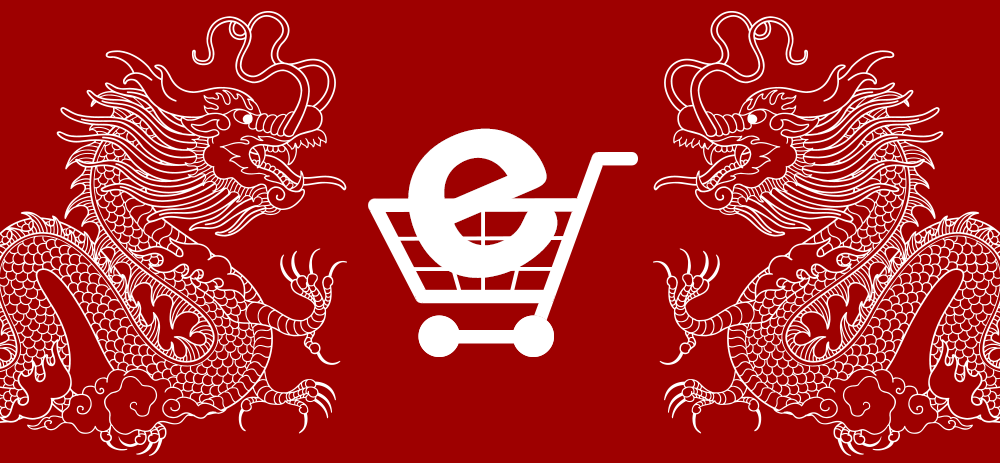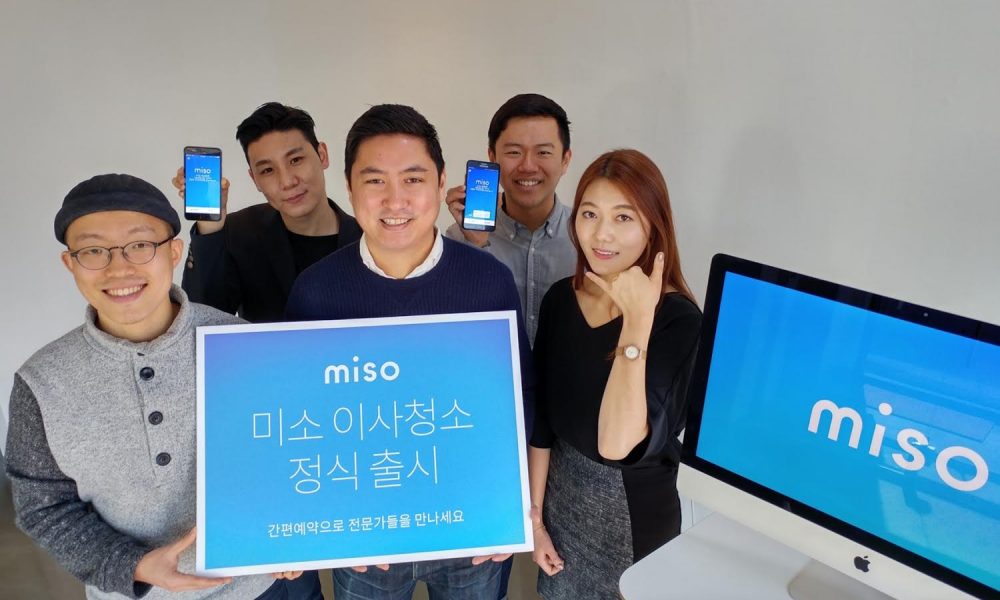Category: Economy
FROM MADE IN CHINA TO SELLING IN CHINA: THE INNOVATIONS THAT TRANSFORMED CHINA INTO THE PLATFORM FOR ECOMMERCE
It’s all in the past. The days when China was associated with sweatshops and cheaply manufactured labels. Although journalists are still reporting cases of child labor and unsatisfactory workplaces in China, the three words – Made in China no longer represents the country
The negative connotations which represent the exploitation of its high population demographics and low-wage advantage have brought forth the country rapid development and now the country is sitting on the laurels of high growth.
Though we may still laugh at the labels of misspelled or wrongly translated English, it no longer bears the same weight. China now represents one of the largest ecommerce markets, rivaling the United States.
In fact, Emarketer.com evaluated the total retail sales of different countries and discovered that both United States and China’s online business take one-fifth of the world’s digital sales share.
And despite the fact how American giants like eBay and Amazon technically built the ecommerce industry, the Chinese ecommerce players are gradually taking over.
E-COMMERCE IN CHINA IS A HUGE BUSINESS

Source: amnaymag.com
Over the past five years, e-commerce growth in China has exploded – accounting for an average of 43 percent growth, with online sales now representing one-fifth of the total retail. This is just products. Consumers are also increasingly buying experiences and services online.
The development of ecommerce also extends to export as statistics from JD.com shows that Chinese-made products, including popular smartphones like XiaoMi, sports equipment like Li-Ning, and household appliances like Midea are sold to more than 200 countries and regions in the world.
In fact, according to a report by China’s Ministry of Commerce, the export transaction for China’s cross-border ecommerce has reached an amount of 2.75 trillion yuan, that is about US$415.3 billion in just the first half of 2017.
Chinese electronics giant Hisense also disclosed that 520,000 of its televisions were sold out in less than 24 hours during Black Friday in the United States.
Although this growth is partly attributed to China’s population size and the rise of urban middle class. A key characteristic to this strong ecommerce market in China is still due to the innovations are seen in Chinese ecommerce startups.
LIVESTREAM CAMPAIGNS AND BRANDING PLATFORM

Source: jingdaily.com
While Amazon may have invented our online shopping addiction. China is where it is taken to the next level. Take China’s online retail giant Alibaba and its online platform Tmall for example.
Tmall is a virtual shopping mall and every brand has an official store page, complete with videos and interactive content. There is usually a standard format, but the page can be customized to fit every retailer’s unique needs.
Cosmetic brands, for instance, can livestream their makeup tutorials along with their products.This makes shopping online as engaging as shopping in person while educating users about their product without the need to leave the comfort of their home.
This serves not just as a point-of-sale, but also a key branding platform through real-time engagement and an extra layer of interaction.
EXPANDING TO PHYSICAL STORES

Source: China Plus
While ecommerce sales are on the rise, majority been pouring are still made in real life, Knowing this, Alibaba and its smaller rival JD.com despite making about 80 percent of ecommerce sale, have both been pouring billions into physical retail.
In the last two years, Alibaba has spent billions of dollar in establishing a physical footprint that includes a grocery store chain, a luxury shopping center, as well as their own branded mall in Jack Ma’s hometown of Hangzhou. Recently, Alibaba has even made a single US$29 billion investment in hypermart operator Sun Art.
REVOLUTIONIZING OFFLINE RETAIL
The thing is Chinese ecommerce are not just expanding to physical retails but rather revolutionizing the way it works. In last year’s Taobao Maker Festival, Alibaba featured two new technologies to disrupt the offline retail space.
First, it was embracing the new retail strategy where big data technology connects and optimizes offline outlets and online stores to enhance customer experience. Second, the ecommerce giant released an experimental cashierless store called Tao Cafe and smart speaker Tmall Genie.
Competitor JD.com also sees the future growth is offline given their release of Take, a new technology tool for physical retailers. By combining online shopping trends with sensors in-store, the tech aims to provide better insights into offline shopping behavior.
REINVENTING CULTURE THRU 11.11

Source: alizila.com
While there’s Black Friday and Cyber Monday in the United States, China has Single’s Day, otherwise known as the Double 11 shopping festival with big deals and promotions. The founder of the holiday was Tmall’s CEO Daniel Zhang, as a way to make single people less lonely.
But soon the holiday has blossomed into the world’s largest single shopping date exponentially. For comparison, Alibaba’s 2017 total sale was RMB 162.8 billion, which translate to roughly US$25.3 billion, and is more than Cyber Monday and Black Friday combined.
Another significance for Double 11 is not just its sales, but rather the date has morphed into an important multi-day shopping festival complete with a live stream gala event featuring Jack Ma dancing to Michael Jackson, an interactive runway show, and a new retail dream. It’s not just another day of sales.
CO-BRANDED PARTNERSHIPS

Source: cnbc.com
A newer trend that has crept up in China is the symbiotic partnerships between e-commerce platforms and brands in terms of distribution and design.
Especially on big shopping occasions, it is not uncommon for e-commerce platforms to set up pop-up shops in high traffic locations — usually with brands that do not have physical locations of their own. The goal is to provide a hands-on shopping experience and then purchase online.
For example, the collaboration between Beats by Dre and Tmall has popped up that lets users experience the power of the new Beats noise-canceling headphones by simulating what they would feel like on an airplane. There is no cash register in the store, just tablets to place your order via Tmall and have them delivered to your home.
Another example of partnership is in the form of exchanging data for intellectual property. Mattel, whose brands include Barbie and Hot Wheels has inked a deal with Alibaba, to exchanging browsing behavior to inform new product designs, as well as selling its products to Chinese consumers on Tmall.
ECOMMERCE SITES FOR EXPLORATION
Ultimately, the design of ecommerce sites in China has made their shoppers treat e-commerce platforms as more than just another purchase platform, they do not just visit it during sales day.
Chinese consumers head on to ecommerce site for exploration and discovery, it’s just like going to the mall but just at the comfort of your home. At times, they even go online just to see what’s new or trending, not just when there’s a need to purchase.
In the years ahead, with the innovative streak presented by China’s ecommerce platforms, it is most likely that one day a change of dynasty will arrive.
MVCA joins ASEAN Venture Council to bolster growth in regional VC industry
Malaysia Venture Capital and Private Equity Association (MVCA) has joined forces with ASEAN Venture Council (AVC) to become part of a larger regional network.
The agreement was signed between MVCA Chairman Shahril Anwar Mohd Yunos and AVC representative Dr. Jeffrey Chi at the ASEAN Venture Summit in Kuala Lumpur yesterday.
Following the deal, AVC will now consist of 4 participating VC associations on board. That is apart from MVCA, this includes Asosiasi Modal Ventura Untuk Startup Indonesia (Amvesindo), Thai Venture Capital Association, and Singapore Venture Capital & Private Equity Association.
Through linking the four national bodies together, AVC is intended to facilitate greater knowledge sharing and collaboration among venture capital firms and early-stage businesses throughout the region, in addition to closing more deals.
On top of that, Malaysia’s participation also comes at a time when their regional venture investments have more than doubled from US$1.3 billion in 2015 to more than US$3 billion in 2016.
Speaking of the deal, MVCA Chairman Shahril Anwar Mohd Yunos said, “the inclusion of MVCA will open up communications with Limited Partners, General Partners, and entrepreneurs across respective countries and provide an effective platform for fundraising, investment syndication, and exit opportunities.”
Established in September 2016, ASEAN Venture Council was initially set up by the Singapore Venture Capital and Private Equity Association with the purpose of creating a coalition to bolster inter-country relations.
It is intended to drive the development of the venture capital industry in a more concerted effort across the region leveraging on each other’s strengths and capabilities – particularly in the areas of events, advocacy, research, education, and deal flow.
Jefri Sirait, the Chairman of Amvesindo explained that “the growth of AVC translates to wider coverage and opportunities for potential deal flows.”
With the addition of MVCA as a new member country, this will strengthen the collaboration between national associations as they leverage on each other’s individual capabilities, synergies, and best practices, which in turn will support the regional entrepreneurial and financial ecosystem across the ASEAN region.
By Vivian Foo, Next Unicorn
South Korean home cleaning startup Miso launches on demand moving-out cleaning service
Miso, a home cleaning online-to-offline (O2O) service startup in South Korea announced on February 27 about the official launch of its moving out cleaning service beginning this March.
Speaking on the launch, a spokesperson from Miso said, “We will improve the inconvenient reservation system and pricing structure based on our diverse know-hows and big data collected from previous housekeeping experience.”
Established in August 2015, Miso connects customers to high-quality housekeeping service using a simple reservation system. Starting this March, its platform has also begun to offer moving out cleaning services as due to the increased demand from customers.
Miso is founded by Haksu Lee who previously ran his own startup Anbado Video along with Victor Ching who was previously a CTO at Seoul-based food delivery startup Yogjyo before its acquisition by Delivery Hero in 2014. Their experience has influenced the buildup of Miso, engineering the platform development towards convenience.
“The Miso app allows users to easily reserve the time and date for hiring a cleaning service. We can predict cleaners’ schedules and assign jobs to them effectively avoiding the hassle for both housekeepers and users,” said a spokesperson of Miso.
On top of that, the pricing in the platform is made transparent and reasonable for both customers and professional housekeepers. For its recent launched moving out cleaning service, Miso will also offer special inspections and after-sale services for an entire day of moving out.
“Traditionally, businesses offer four or eight-hour services, but they charge you more for the same amount of time depending on the size of your house. I don’t really think that made a lot of sense because you’re still paying for four hours. Some of the pricing structures from other cleaning services look like a mini Excel spreadsheet.” says Miso’s CEO Ching.
“It’s a different pricing table if you want to have a load of laundry done or some kind of cleaning for your fridge. Everything needs an additional fee,” adds Lee. “It’s a big pain point for existing customers and we wanted to simplify it.”
South Korea’s home cleaning service market is worth US$5 billion and gradually increasing due to South Korea’s growth in dual-income households. Since 2005, spending on cleaning services has increased threefold. With 44% of all households being dual income, cleaning services will continue to be in high demand.
As of February 2017, Miso offers the moving out cleaning service in the three major cities of Seoul, Incheon, and Gyeonggi-do, in addition to a standard package o 45,000 won (about US$40) for 4 hours of cleaning.
Miso CEO Victor Ching said, “Miso ensures that people like office workers and two-paycheck couples with busy lives enjoy the moving out cleaning service with its transparent pricing… moving out cleaning requires a lot of attention and effort, and we hope that our customers can live a comfortable and enjoyable live in their new homes, leaving the hard work to us, the professionals.”
With the average Korean home becoming smaller, Miso plans to offer shorter services so that users can pay less and have their homes cleaned more frequently. Miso will also continue to improve the quality of its own customer review analysis algorithm.
By Vivian Foo, Unicorn Media
China establishes US$1.44 billion Asia Fintech Fund of Funds (FOF) focusing on M&A deals
The influence of China in advancing fintech is likely to grow even stronger in 2017 with the establishment of Asia FinTech Fund Of Funds (FOF) which has accumulated a substantial funding of 10 billion yuan (approximately US$1.44 billion) to invest in fintech startups across Asia.
Based in Beijing, the foundation was formed on December 27 and is led by Hong Kong-listed Credit China FinTech Holdings along with a number of other Chinese companies such as Shanghai Xinhua Distribution Group, China Huarong International, Jilin Province Investment Group Corp Ltd and seven other corporate partners.
“In addition to the aforesaid state-owned enterprises and private enterprises, China Cultural Industry Association, New Times Trust Co Ltd, Shenzhen China Create Group, N-Securities Co Ltd, Beijing Yongyu Investment, Tianjing Borong and Juntong Capital are also partners of the fund,” Credit China FinTech said in a statement,
The fund will primarily be used to target financial and tech mergers and acquisitions (M&A) in Asia, with investments, focused on fintech fields such as big data, artificial intelligence, mobile payments, supply chain financing, and blockchain technology.
“The fund already has projects in the pipeline, covering big-data driven consumption financing, blockchain infrastructure provision, and AI-based credit service platforms,” according to Xie Sha, the Managing Partner of Asia Fintech FOF.
The investment fund also comes as a signal showing China’s growing status in dominating the financial and technology market in the international platform.
A report released by DBS and consultant EY has also ranked China as the number one fintech destination, overtaking London, New York and Silicon Valley as the world’s “FinTech Hub”.
This result is largely contributed by the developments across multiple hubs, such as Shanghai, Beijing, Hangzhou in East China’s Zhejiang Province and Shenzhen in South China’s Guangdong Province.
On a similar note, the Asia FinTech FOF, also comes as the second fund of funds (FOF) after the Zhongguancun FOF, which was established in 2015 with an allotted fund of 30 billion yuan (approximately US$ 4.32 billion).
Asia FinTech FOF attempts to establish growth in the fintech industry is another attempt in China’s cap to establish its economic dominance in the Asia-Pacific region- especially if Beijing can compete with Singapore or London in the fintech sector.
“Leveraging on the fund partners’ experiences and competitive advantages in brand recognition, industry resources, and expertise, the Fund aims to invest in innovative FinTech enterprises with potential and help them to be the FinTech leaders with our technical know-how and capital resources,” said Sheng Jia, the Credit China FinTech Executive Director.
By Vivian Foo, Unicorn Media
Galaxy Holdings, Puji Capital announces joint venture platform to back foreign businesses in Shenzhen
Asia-based investment group Puji Capital and China-based property developer Galaxy Holdings has recently announced a joint venture agreement to create a new economic and business region in Shenzhen.
With this partnership, the two companies will be providing direct investments and act as a business incubator for foreign startups to expand in China and other high-growth markets in Asia.
This new joint venture platform is also projected to spark innovation and bridge cross-border business cooperation between China and Western countries through investment and business support.
Commenting on the deal, the CEO of Galaxy Holdings, Yao Huiqiong said, “This new platform will create new jobs and economic benefits for the city and truly define Shenzhen as the new innovation capital for China and Western business.”
“As a Special Economic Zone that is only 30 minutes’ drive from Hong Kong, Shenzhen has the most developed infrastructure and business environment in the country to help companies reach full potential,” Yao added.
Additionally, the joint venture will also target and invest in more than 10 small to medium-sized Western growth companies in each of the three core industry sectors – mobile gaming, media technology, and consumer hardware
The two companies also aim to develop separate joint ventures to enter and expand into China market, capitalise each on the rapidly growing Chinese consumer market, and establish strategic positions along the respective industry ecosystems.
“Shenzhen is already known as the epicenter of China’s booming internet, mobile, hardware, and new technology industries. With a population of 22 million, a leading growth rate among all the Tier 1 cities and the highest ratio of young professionals from 20 to 30 nationwide, Shenzhen is undoubtedly the most vibrant business city in China and positioned to be the Silicon Valley of the East,” Yao said.
Based in Shenzhen, the new innovation and business hub has already developed programmes with a preferred network of strategic partners across China for co-investments, commercial cooperation, distribution, and point of sale opportunities for Western companies the platform invests into.
“We are uniquely positioned in the market as we have participated in various cross-border investments and provided related advisory between China and the West for over 15 years,” said Alex Szeto, the Investment Director at Puji Capital.
“We have seen nearly every iteration of pitfalls and pain points for Western companies entering China,” he further explains. “So, now when we make direct investments into the US and Western companies coming to China, we can also provide a tailored and turnkey solution and strategy for success. Galaxy (Holdings) is a cornerstone brand name throughout China and we are beyond thrilled with this new venture with them.”
Founded in 1988, Galaxy Holdings is a China leading conglomerate which primarily focuses on businesses in four key areas — Real Estate, Industrial, Property Management, and Finance.
At present, the firm has a total asset scale over US$15 billion, with its real estate business expands throughout 13 cities across Pearl River Delta, Yangtze River Delta, Circum-Bohai-Sea Region, and more.
By Vivian Foo, Unicorn Media





